Fall of 2004, I met my wife in Tianjin, after seven years working in Asia managing trading offices that delivered furniture and components to America. Only seven years! How could so much happen in such a brief moment? Anyway, this is not the story of American Psycho or How I Met Your Mother, at least I’m not ready to see those stories out in public yet.
My partner and I are trying something new here, an interview, in a loose fashion. As readers of this series will know, my wife is a native of Tianjin, growing up here in the 1980s and 90s. We want our boys to understand their roots and what life was like for us at their ages. The bold text are my questions, the italicized her responses. Taken together with our other adventures and writing on this blog, some of who we were and what we stood for will be forever there for them to visit.
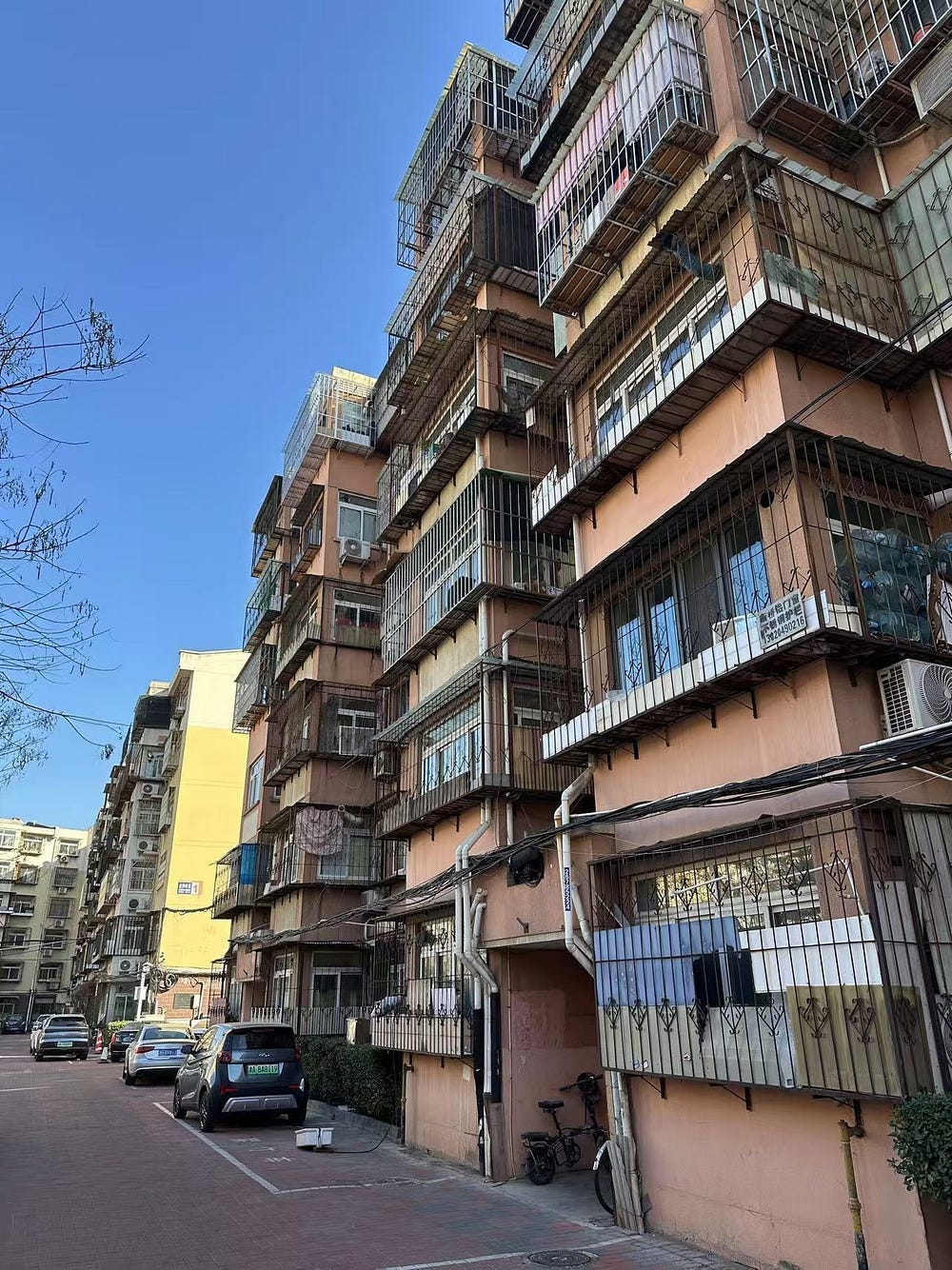
The places may be nearly unrecognizable, but as we walked about the old Tianjin neighbourhoods, what has been preserved is enough to form a picture of the values of the people who lived then and today.
Your family was fairly typical for Tianjin at the time?
Yes, our family was very normal. Not middle class, but my sister and I had all the basics because both of our parents worked and were able to support our schooling. My parents had a decent but not special education for the time. Neither had a college degree. My father had to choose to work or go to High School. It wasn’t really much of a choice. My mom was better educated and able to find work in an office doing finance. Neither of them was firstborn in their families, and the first usually got the most resources. My father was second, and my mother fourth.
Readers might be wondering and want to ask why I have an older sister. Shouldn’t we be a one-child family because of the one child policy? Fortunately, I was born just before the cut off date. My mom recalls soon after when people started showing up at her work looking for pregnant women. I was really lucky.
What was it like growing up in Tianjin?
Until I was four years old, we lived in the old courtyard style homes. I don’t have many memories except playing with other kids and eating with my grandma and other families. There are no secrets in the courtyards. Think of the Beijing Hutongs. More rough than the museums we can visit today but kind of like that. Everyone can see and hear everything the neighbours are up to. Our home had one main room for sleeping, working, and all our stuff. A smaller room was for kitchen and storage. Toilet was outside and shared by everyone. Heating came from burning coal. Tianjin winters are so cold.
The good thing for me was my Grandma lived close by. I could run to my Grandma, and many neighbours were elderly, kind people. They were nice and shared food with us. People looked out for each other. Our parents were often at work late and the neighbours were there to take care of us. Everything was close by, within walking distance. School was so close by. I remember my sister hated going to school. Several times she ran away and just came home. I remember she was also famous for going to eat whatever other families were cooking. I guess she didn’t like our Dad’s cooking.
Why did your family buy a new apartment at that time?
Well, we moved to the sixth floor apartment because we needed more space. My Dad realized four people couldn’t fit well into a single room all piled together. But we didn’t buy apartments at that time. My parents submitted a request to their company at the time. All companies were state-owned then and were responsible for more than just work. If they could justify the need for a larger apartment, they could be assigned one, and the smaller place would be “traded in” to give to someone else. The new apartment had two bedrooms, so my sister and I could share one, and we had a bathroom inside.
What did you do for fun?
The courtyard had a lot of other kids to play with. At the new apartment, things were quieter and making friends wasn’t as easy. School was where my new friends came from. I liked reading and sleeping late on weekends. Reading my stories and listening to music were my hobbies. With studying, there wasn’t much time for anything else, and Mom and Dad couldn’t support us in sports and other things. We had a small radio to listen to. We didn’t have a cassette player or CDs until high school. I do remember a nice old man who lived close by had old records. The big round black ones, remember those? He would let me pick the records I liked. I’ll never forget that.
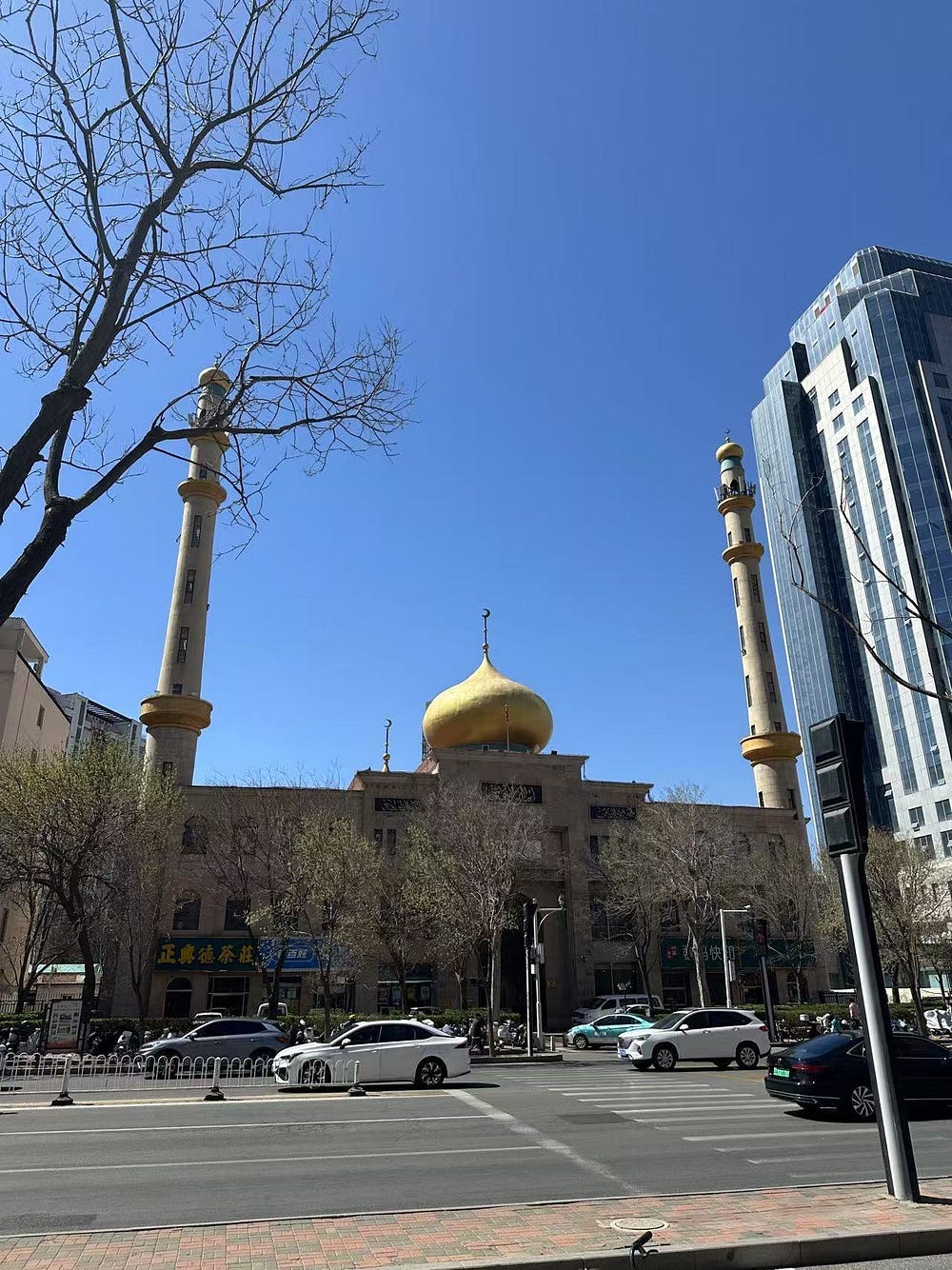
This Tianjin district, Hongqiao, is known for the population of Hui nationality, temples, and traditions living there. The Hui nationality are an ethnic-religious group that are Chinese-speaking followers of Islam. Communities can be found all over China, but most are concentrated in the Northwest. According to the 2010 census, there are ten million Hui, many living in the western provinces, but there are large communities in Beijing and Tianjin.
What do you remember of Hui traditions and beliefs growing up?
This was in the background, and normal, so we never stopped to think about it, you know? The older people were more serious, I remember them praying and going to the temple. I remember many followed Ramadan, but it had another name. My grandma did that, not eating all day, but my parents, my sister, and I never did.
I think my parents felt the traditions more deeply than we did, but didn't push or insist that we do anything. What I remember most is getting gifts from neighbours on special occasions. Like beef or lamb that could only be slaughtered in a certain way by the temple. Or youxiang (油香), a round, deep-fried salty bread only made by the temple on holidays or anniversaries of someone’s passing. A family would get a bunch and share with others in the community. Youxiang is so delicious.
*As we walked around the old neighbourhood, all of the oldest courtyard-style homes have been long demolished, but some of the older apartments remain. The old farmer’s market is still where it was, only then there was no roof, the carts and trucks exposed to the weather.
What was shopping like without the internet and same-day delivery?
We didn’t have a refrigerator at home, like most at that time, so fruits and vegetables would only keep for a few days. Daily shopping during summer vacation at the fresh market became my job, because Mom and Dad had to work, and Dad thought I should learn to negotiate, judge quality, and spot the sellers tricks. They liked to slip in the old and nearly spoiled stuff to the little kid if I didn’t pay attention. This was really hard for me at first. I had to get over my shyness and build confidence quickly. The negotiating and people reading skills I practiced there have been useful to me every since.
Carrefour came to China early (1995), and we had a refrigerator after 1990, so then it felt like every day was Chinese New Year. We got a Haier (a local brand) because Dad knew someone and could get a ticket to buy one.
Chinese new year was a very exciting time for kids. This was the only time of year when we got a lot of certain foods, especially beef and lamb. We normally didn’t get meat that much, especially in winter. Cabbage could be frozen and would keep through winter, so we would stock up on cabbage. I hated the noodle with cabbage sauce that Dad made. Everyone was happy in summer with tomatoes and watermelon.
What was going to school and China’s approach to education like for you?
All my schools from primary, secondary, to high school were all in Tianjin’s Hongqiao district not far from our home. You see, that is how the system works even today. You qualify for the school by living in the area first. It is like the hukou system, which is the city level registration. So people will buy or rent apartments in the area where the best schools are.
Everyone wants to send their kids to the best schools they can. But kids are also rigorously tested at each step too, and if the grades aren’t there, they will not get to go to the “A” school. They get B or C. Our family hukou was in Hongqiao, so we got to the schools there, and many were considered very good. We did all sorts of things to improve our chances. I remember my dad had a coach teaching me to play table tennis because he knew the school would value that extra skill. Relationships with teachers was very important. They are an important influence in a student’s life. You know how it is. At the margins, a slightly less-than score in a test can be smoothed over with the right donation.
Family economics has always played an important role in education. Rich parents can afford the apartments in the areas where the best schools are, and they can afford to pay for extra tutors and classes that keep their kids ahead and specifically prepare them for the tests. But the way the system classifies kids early is something I never liked. We have to study so much, memorize so many things, and then a test everyone takes tells you what your value is. Young people get the wrong idea early on and are not encouraged to consider paths that they might enjoy and have passion for.
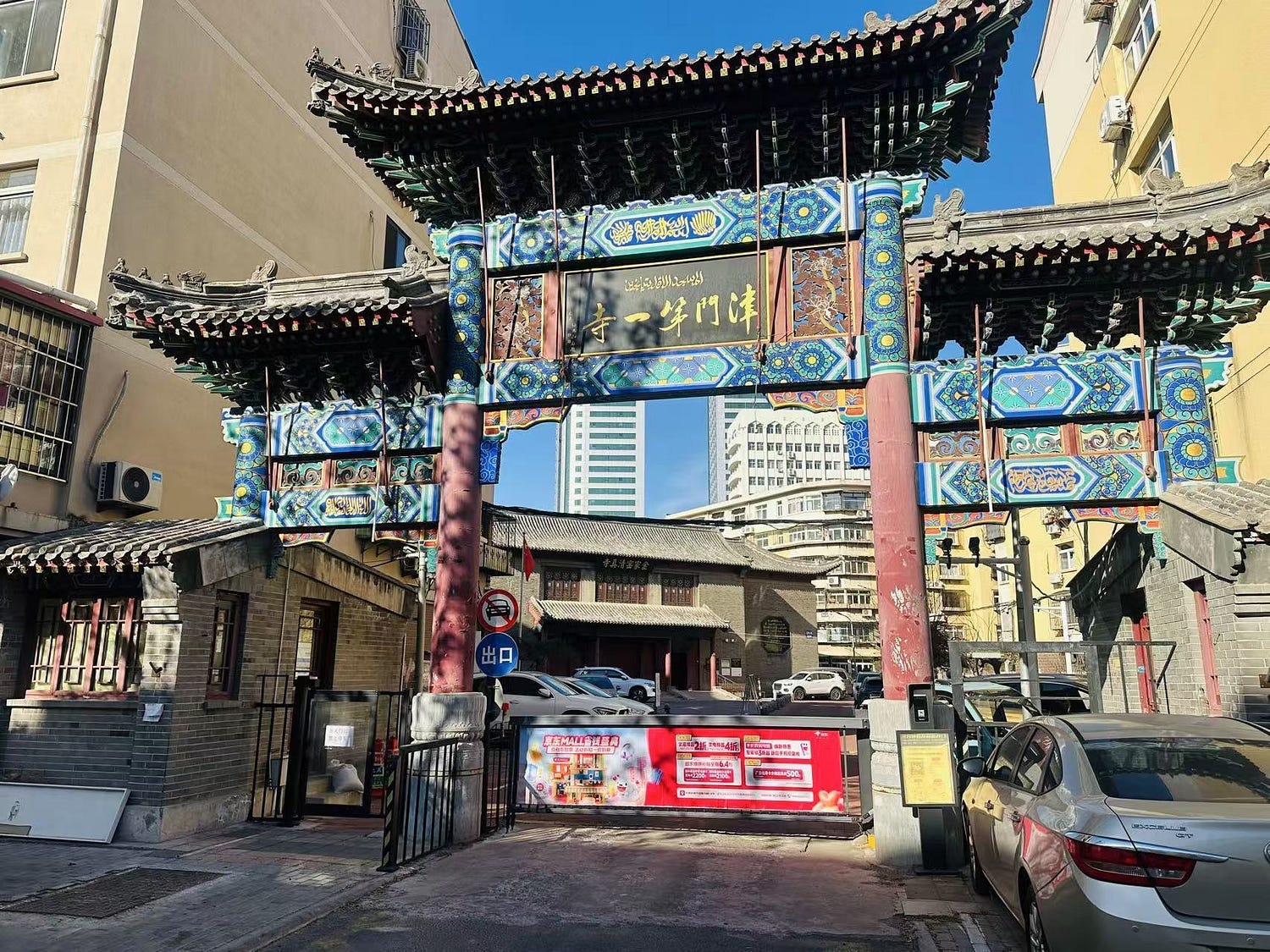
As we walked around the new gated community on the site of the old courtyards, the signs of the community temple mosque trigger memories, confirming that this is indeed where she used to play and run about the alleyways. This temple is the only structure that has survived, only because it is protected.
Looking for Hui culture around Hongqiao’s XiBeiJiao, it is revealed how many of these temples exist, and the efforts expended to preserve them. There is a temple in XiBeiJiao, and another only an intersection away. That one hosts a clinic business and is also inside a giant new high-rise that had to be built around it. The towering golden mosque pictured at the beginning of the article is the youngest.
How do you feel coming back to the old neighbourhoods? Does Tianjin still feel like home?
This is the first time since I returned to the old courtyard area since high school. My grandma lived there until her passing. Until I saw the small temple, I actually didn’t fully realize that this was the place. Things had changed so much. The memories of the other kids, playing around, they were there but the place is different now. I feel connection to the memories but not the place it is today.
Tianjin feels like my parents’ home, or maybe say, my old home. Like most kids, when we grow up, we want to go out. I wanted to go university outside Tianjin, but my parents worried. They wanted us to stay close by, and I did attend university in Tianjin, but left soon after to find better work and build a career.
The old generations are very conservative, and Tianjin itself has a conservative reputation in China. They would say, “Tianjin is already a big city, why do you want to go somewhere else?” And my Dad would say, “If you were a boy, you could go anywhere, and I don’t need to worry,” which really bugged me. Some teachers were good to me, treated boys and girls the same, and encouraged me to think about what I wanted to do and go where I wanted to go. My mom and dad weren’t to blame. They had only known Tianjin and had been taught by life to be cautious and worry about the future.
We want our boys to feel confident that they can go anywhere and do anything, and that we will always be there behind them if they need us. They don’t need to stay close to us, marry someone we choose for them, or worry about us every day either. We hope they take risks and try more things.
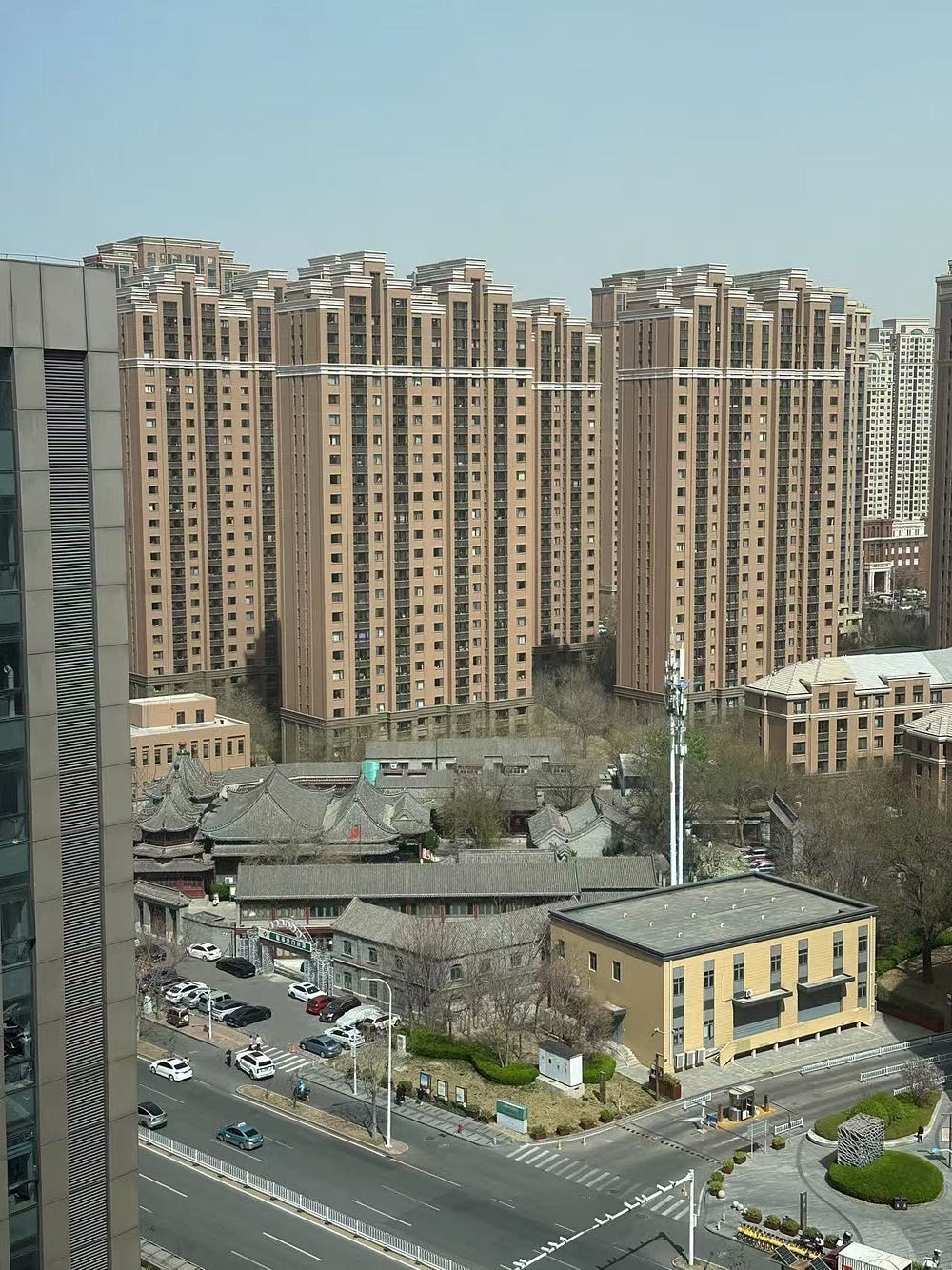
These days, I seldom recall why this quest to see myself through an exploration of the people, history, and culture around me came about. That’s how life progresses for me, perhaps for you too. Actions and plans acquire a momentum on their own, and so I continue doing long after forgetting the why. It is important to refresh and reflect on the purpose we settled with, lest we drift. I am very grateful to have someone who is patient, supportive, and at least tolerates my interest in this quest.
The past, distant and immediate, and the people whose time overlaps with ours, press upon us and shape our growth. This is what my efforts to become aware and accepting have revealed to me, before I can set down judgment, to try to understand how it all happened.

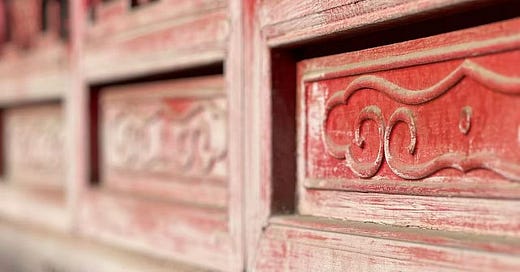



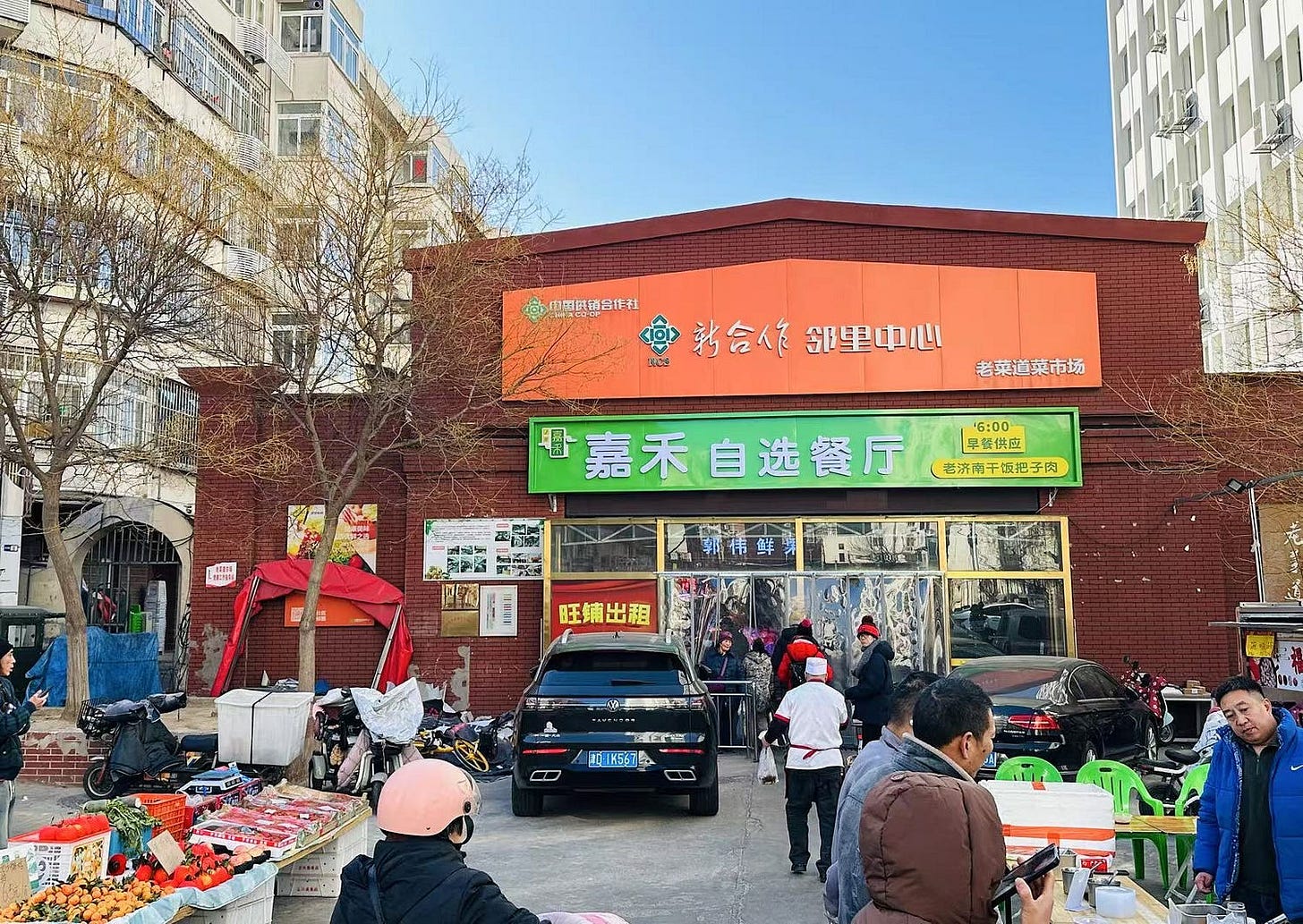
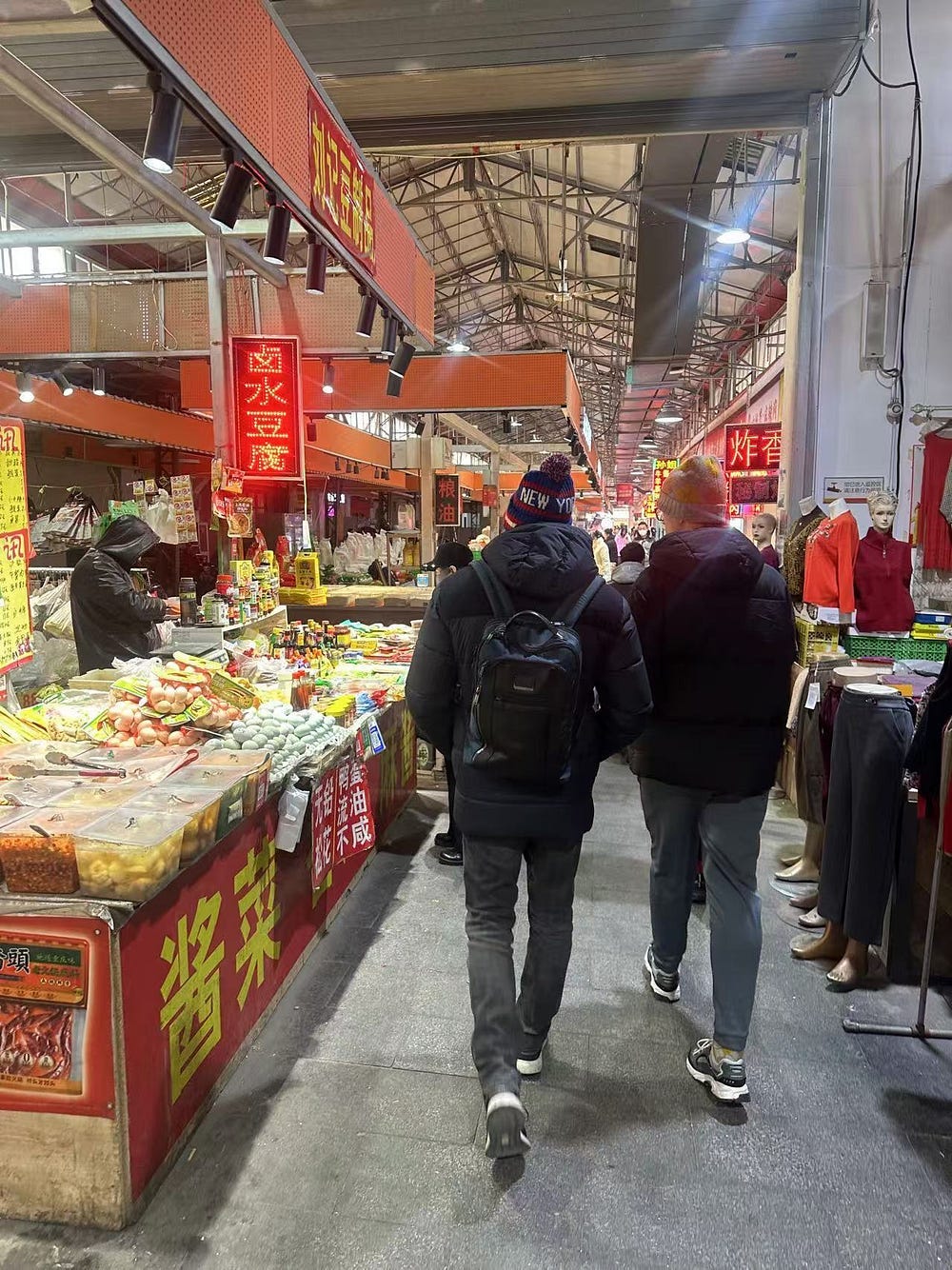
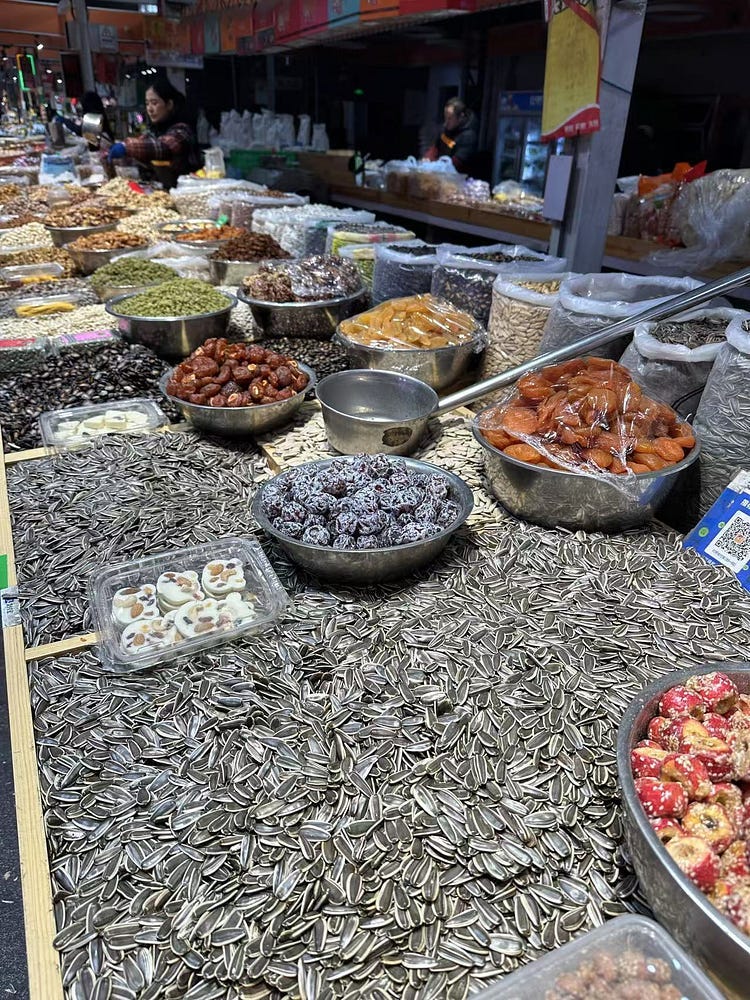
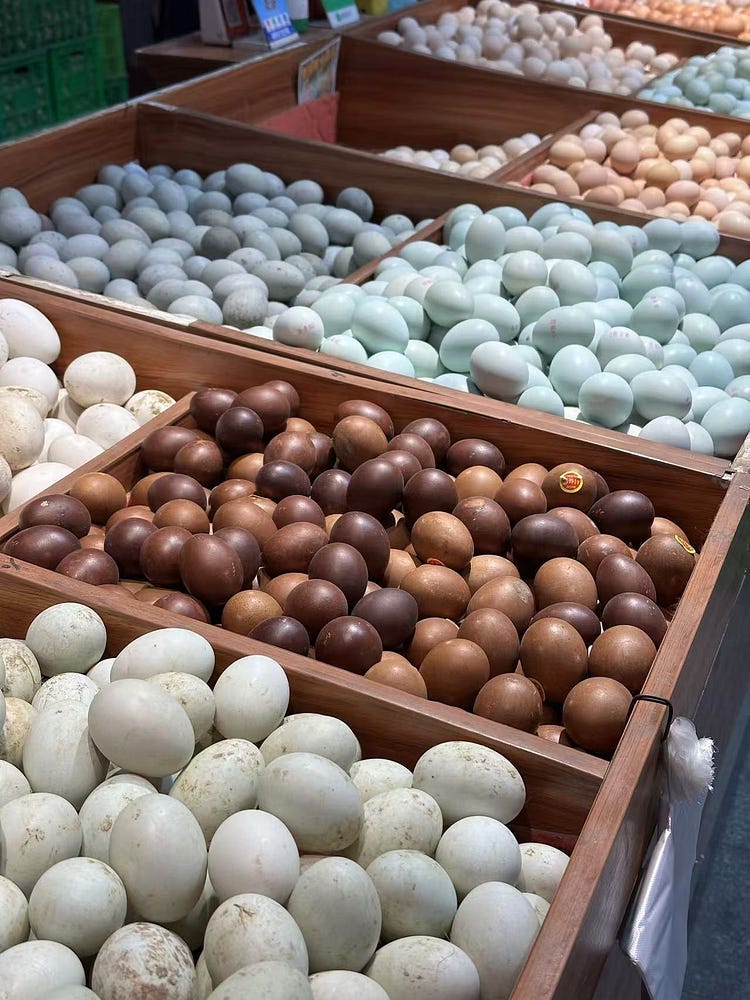
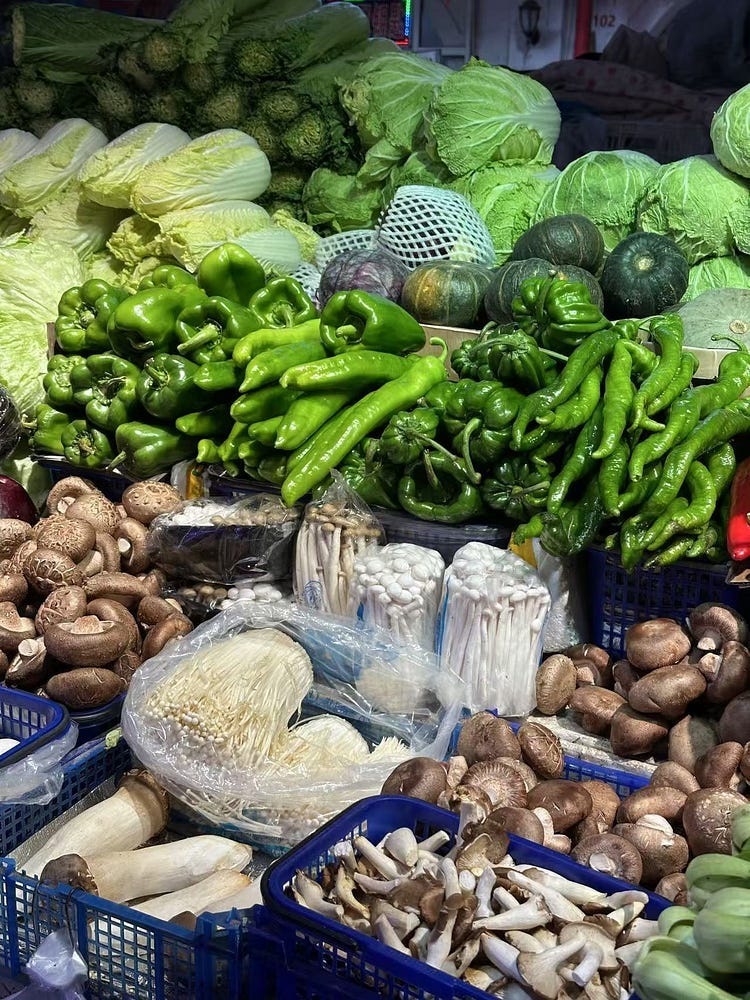
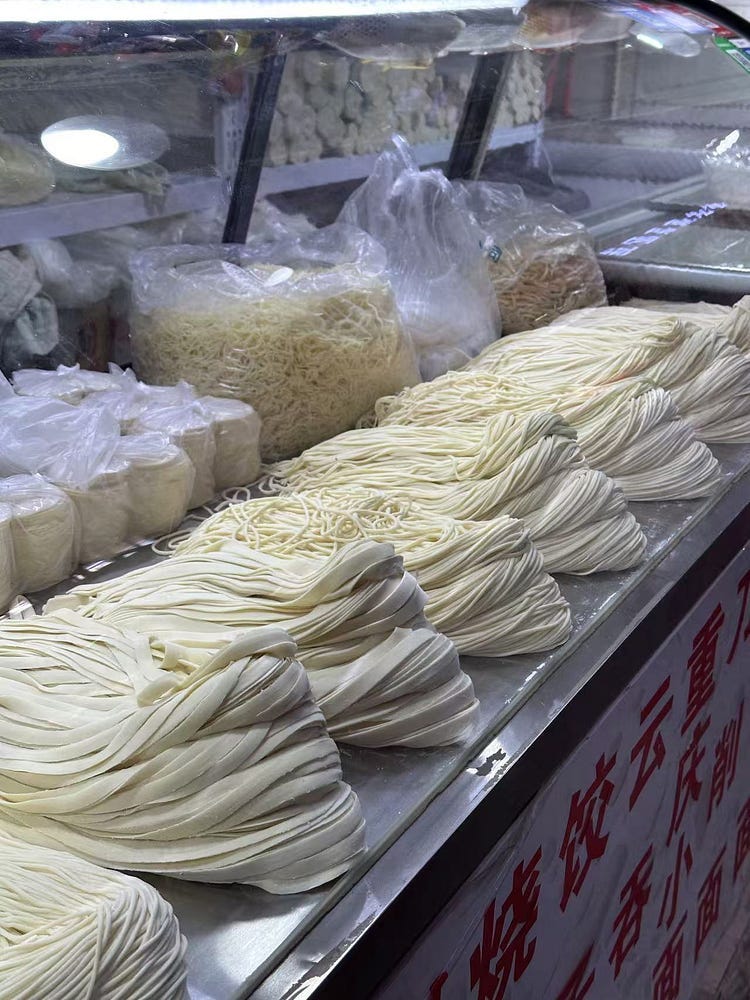
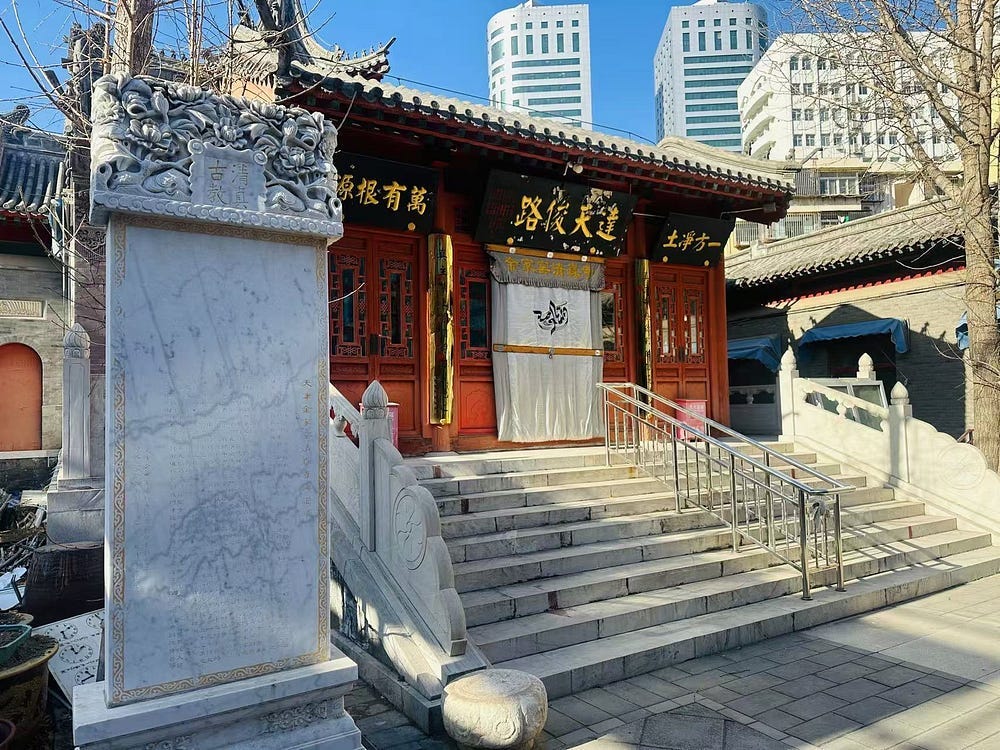
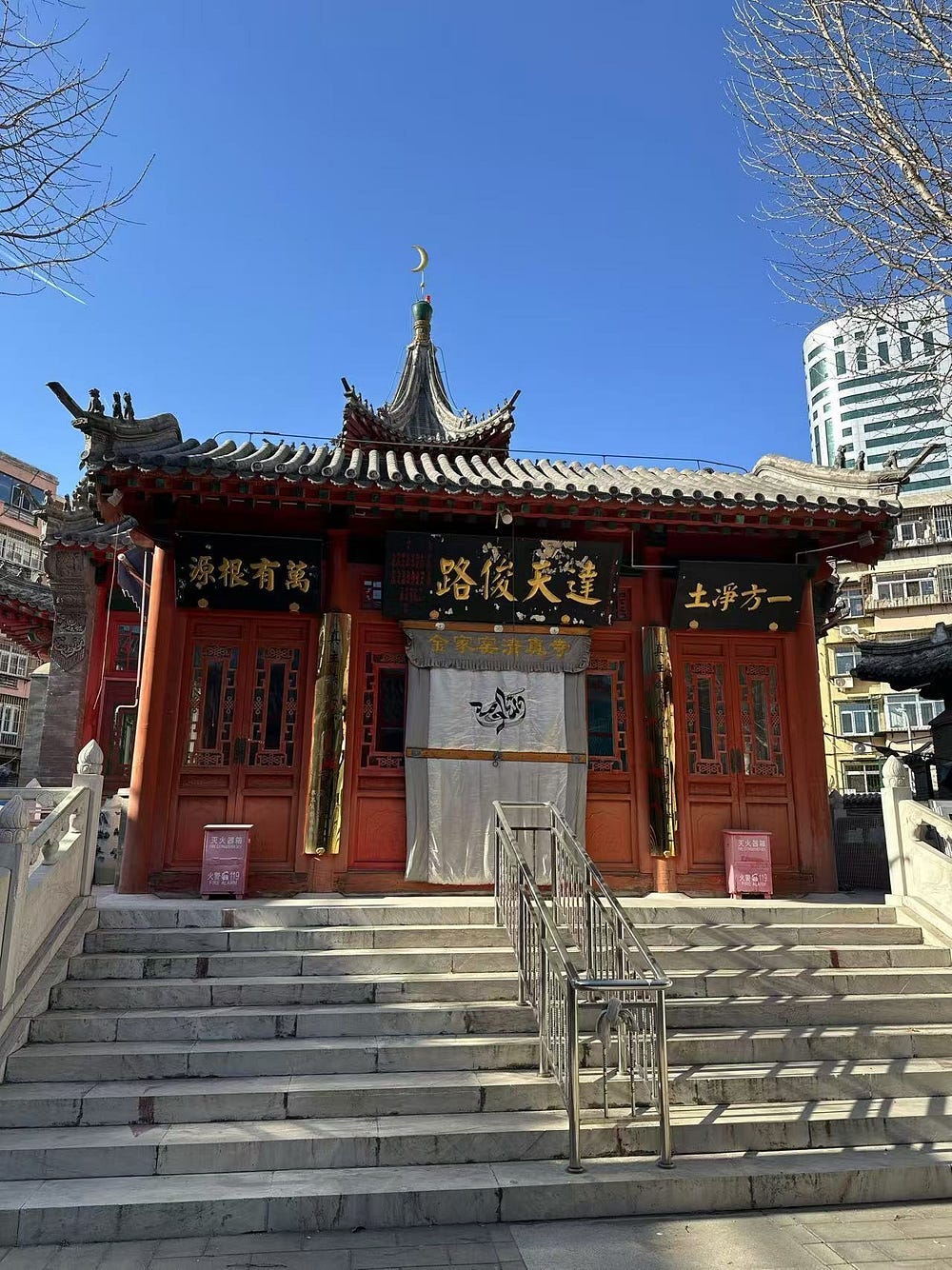
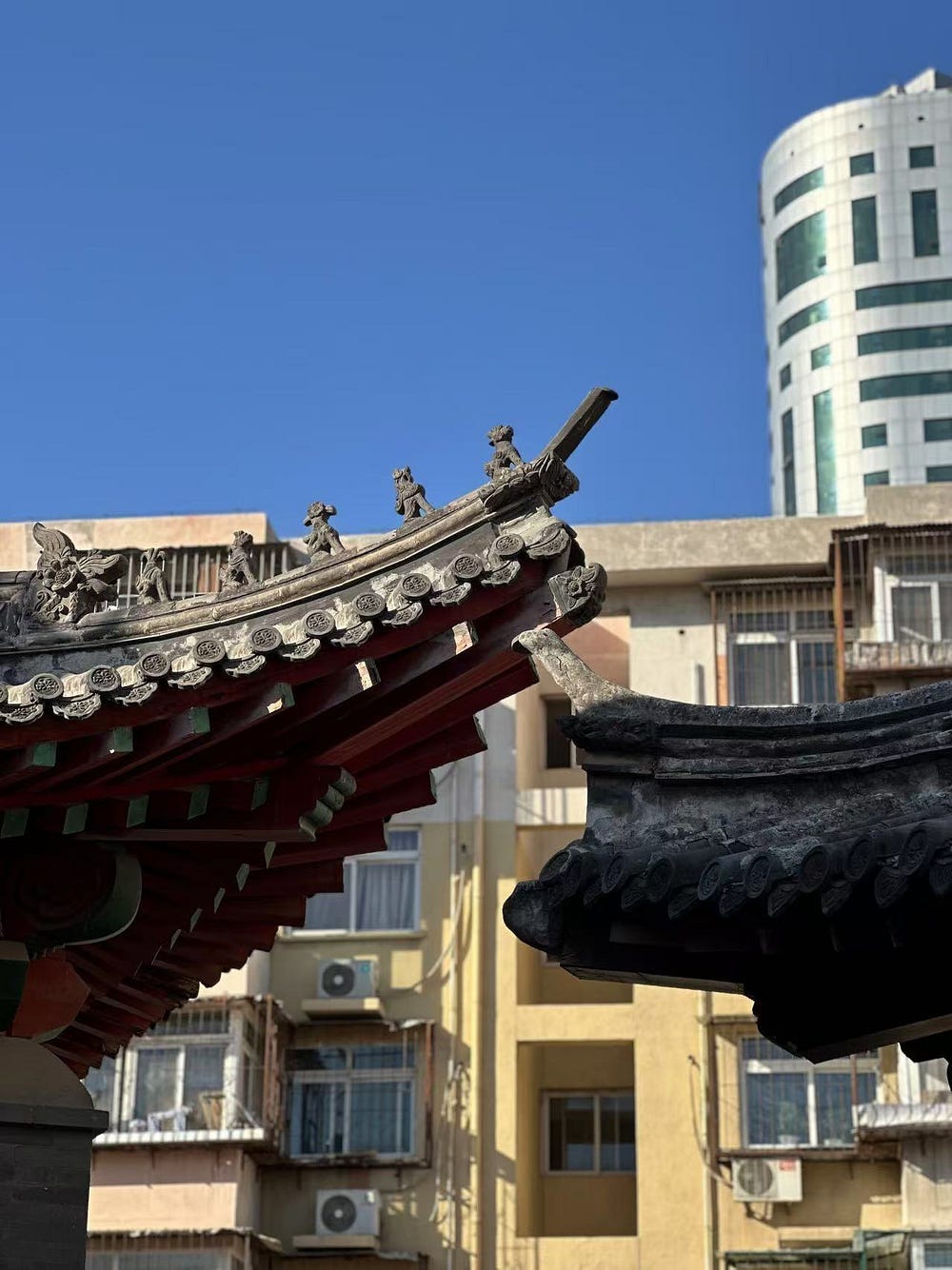
This was so lovely! I loved learning more about your wife and her journey :)
Nice story! The format is interesting and appreciated, with the content very insightful! It is intruiging how religions differ between regions.